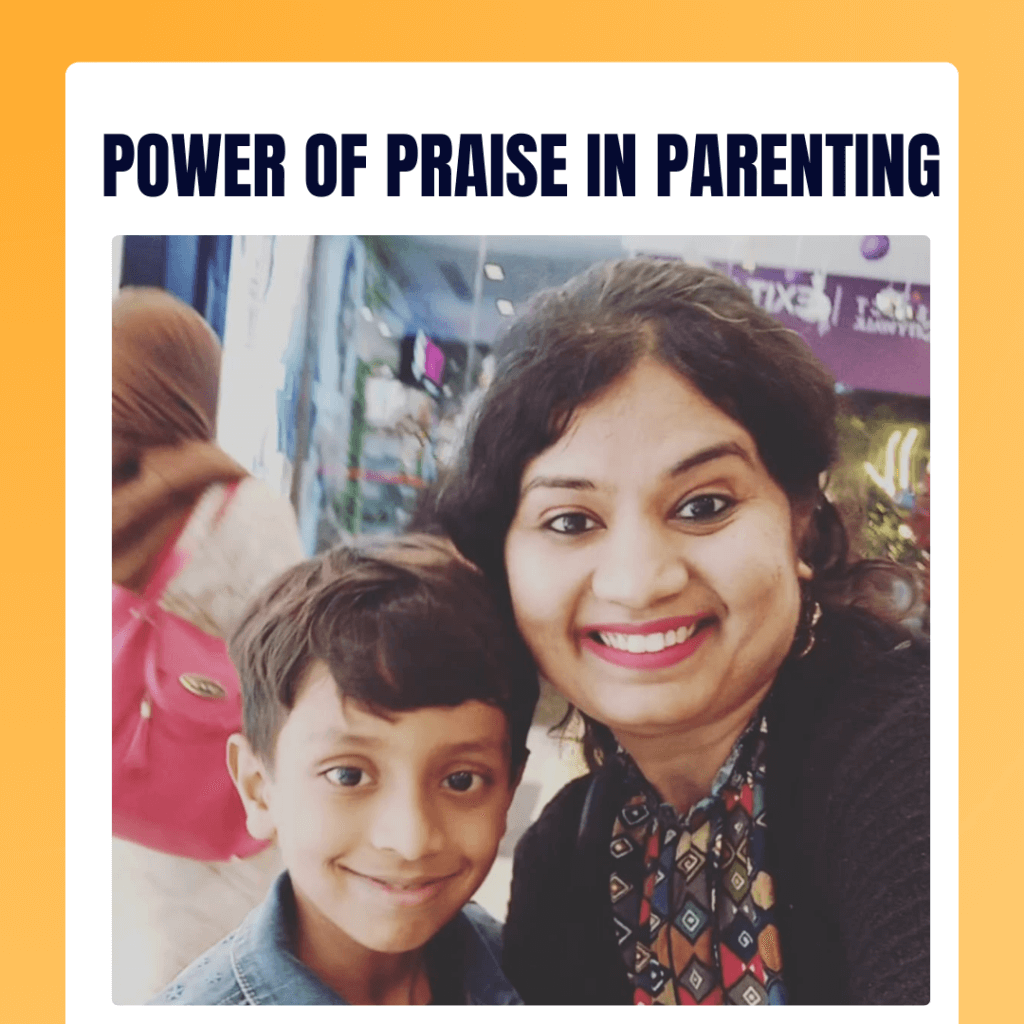My 7 year old came to me with his drawing and asked me, “Mummy, how’s this? As I immersed myself in my work, I responded, “It’s good, Beta.” He again asked me, “Kaisa hai yeh, mummy. (How is this, mommy?) I realised that my absence (lost of connection) made him feel bad. I quickly held his drawing book and saw his art. I said, “Wow, the drawing looks so beautiful, and I loved the way you drawn the fancy tyre of the car; also, the colour of the car looks stunning.”
As parent, we often overlook our kids little efforts and don’t feel like giving appreciation. As a humans, we often crave for appreciation, but we rarely show it to others. So dear parents lets consciously makes an effort to make difference in our kids lives.
Praising your child effectively can have a profound impact on their self-esteem and overall development. When done correctly, praise can foster a positive and supportive environment that encourages children to grow, learn, and thrive. Here are some ways in which effective praise can help your child improve:
- Boosts Confidence: Praise can help your child feel more confident in their abilities, which can translate to improved performance in various areas, such as academics, sports, or extracurricular activities. When children feel confident, they are more likely to take risks, try new things, and push themselves to achieve their goals.
- Encourages Effort, Not Just Talent: Effective praise focuses on the effort your child puts into a task, rather than just their natural ability. This helps to develop a growth mindset, where children understand that their abilities can be developed through hard work and dedication. By praising effort, you encourage your child to persist in the face of challenges and develop a sense of resilience.
- Fosters a Positive Self-Image: Praise can help your child develop a positive self-image by highlighting their strengths and accomplishments. When children feel good about themselves, they are more likely to develop healthy self-esteem, which can lead to better relationships, improved mental health, and increased overall well-being.
- Promotes Self-Motivation: Effective praise can motivate your child to continue striving for excellence. When children feel recognized and appreciated for their efforts, they are more likely to be self-motivated and take ownership of their learning and achievements.
- Develops Emotional Intelligence: Praise can help your child develop emotional intelligence by teaching them to recognize and manage their emotions. When children receive praise, they learn to associate positive emotions with their accomplishments, which can help them develop a more positive outlook on life.
- Enhances Creativity: Praise can encourage your child to think creatively and take risks. When children feel supported and encouraged, they are more likely to explore new ideas and approaches, which can lead to innovative solutions and a more creative mindset.
- Supports Learning and Development: Effective praise can support your child’s learning and development by providing feedback that is specific, sincere, and timely. This helps children understand what they are doing well and what they need to work on, which can lead to improved academic performance and overall growth.
To praise your child effectively, consider the following tips:
- Be Specific: Praise specific actions or behaviors, rather than general traits or characteristics.
- Be Sincere: Only praise your child when you genuinely mean it, as insincere praise can be damaging to their self-esteem.
Do share your thoughts in the comment.
- Be Timely: Praise your child immediately after they have achieved something, while the experience is still fresh in their mind.
- Focus on Effort: Emphasize the effort your child put into a task, rather than just their natural ability.
- Use Positive Language: Use positive and uplifting language when praising your child, avoiding criticism or negative comments.
By praising your child effectively, you can help them develop a positive self-image, build their confidence, and encourage them to strive for excellence. Remember to be specific, sincere, and timely in your praise, and focus on effort rather than just talent.
Reach out to me @ www.jyotisinghcounsellor.in


